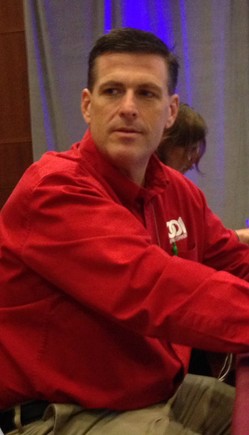The Presbyterian Church (U.S.A.)’s movement to start 1001 new worshiping communities in 10 years is “transformation strategy for the entire church,” said Philip Lotspeich at a Presbyterian Mission Agency (PMA) board meeting here Sept. 26.
Lotspeich, the PMA's coordinator of church growth, told worshiping communities committee members “there is excitement through the whole church about 1001,” citing National Capital Presbytery in Washington, D.C. as an example.
“They want to connect every one of their existing congregations with a new worshiping community,” said Lotspeich. “As this is happening we’re seeing our churches learning and watching and bringing life into their congregations.”
Lotspeich was responding to committee members' encouragement for the mission agency to “not forget about our existing congregations” in the midst of its new worshiping community work.
Since the 220th General Assembly (2012) declared a church wide commitment to the 1001 movement, more than 140 worshiping communities have been identified.
The Presbyterian Mission Agency is providing financial support to many of these new communities — 46 have received $7,500 “seed grants.” In addition, two $17,500 “investment grants” and five ($1,500 annual) health insurance grants have been awarded, totaling nearly $400,000 (See Mission Program Grants, a ministry of Evangelism and Church Growth, for additional information.)
PMA board member Marianne Rhebergen, who serves on the worshiping communities committee, told fellow members she loves the 1001 movement. “I have helped get a worshiping community started,” she said.
But she wants to make sure younger pastors in existing congregations who are doing vital, “cutting edge” work are also lifted up.
First Presbyterian Church, in Englewood, N.J., is just one example, she said, “The pastor sends out a 90-second sermon previewing Sunday’s message to members (who can then forward it to others in community).”
“Our traditional Presbyterian churches are doing new, exciting things. Let’s make sure we pay attention to them too so they don’t get discouraged in their important work,” Rhebergen said.

